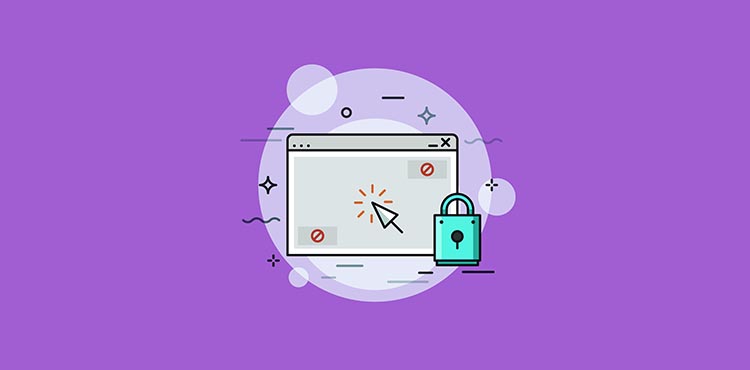The emotional quotient is equally as important as the intelligence quotient for success in the workplace. An emotional intelligence program fosters stronger relationships, creates a competitive advantage, and drives business success.
The workforce as we know it’s constantly changing.
Technology is streamlining our workflows. And new generations are entering the workforce with different expectations and demands.
Now more than ever, companies need to adapt their talent acquisition and management approaches to stay competitive.
But how do you stand out from the crowd? Do you hire directly from top Ivy League schools? Leverage machine learning? Or invest in your people by implementing an emotional intelligence program?
There’s no one-size-fits-all answer here. But there’s one option that stands above the rest.
Think about it this way. People with high emotional intelligence (EQ) outperform others with high intelligence quotients (IQs) 70% of the time.
Now that we have your attention, what is an emotional intelligence program? And how can it help your workers become better employees and leaders?

In this article, we’ll discuss why you should invest in emotional intelligence programs and their impact on your bottom line.
Let’s dive in.
What is emotional intelligence?
Emotional intelligence (commonly abbreviated as EQ or EI) is the ability to recognise and manage your own emotions, as well as the emotions of others. It’s a way of thinking and behaving, helping you cope with the demands of everyday life.
Emotional intelligence can help you make decisions based on logic rather than emotion.
For example, your boss asks you to take on an additional project at work. Naturally, you start to feel stressed with a full plate already and might push back on your boss in a negative tone.
However, if you let your EQ lead the way, you might consider how much this new task will help your company succeed and advance your career, which is worth taking on more responsibility.
With more than half of US employees working remotely at least once a week, emotional intelligence is increasingly important when people have become more physically distant in the workplace.
The best thing about emotional intelligence is that it’s a skill you can learn with practice. For example, people who measure low in emotional intelligence can improve a specific EQ skill within six months to a year.
EQ includes four skills: self-awareness, self-management, social awareness, and relationship management. These skills then fall into two main competencies: personal and social.
Self-awareness
Self-awareness helps you understand how you’re feeling at any given moment — and why you feel that way — so you can make appropriate choices regarding your behaviour in response (or lack thereof).
If you’re not self-aware, you might struggle with empathy. Empathy is the ability to understand people’s feelings and perspectives — and without this skill, it can be difficult for employees to focus on other people’s needs rather than their own.
Laura Wilcox, the director of management programs at Harvard Extension School, states, “The core of high EI is self-awareness: if you don’t understand your own motivations and behaviours, it’s nearly impossible to develop an understanding of others. A lack of self-awareness can also thwart your ability to think rationally and apply technical capabilities.”
When you’re aware of your emotions, it makes it easier to manage them correctly, which will ultimately benefit you as well as those around you.
Self-management
Self-management uses awareness of your emotions to stay flexible and direct your behaviour in a positive, productive way.
Emotionally intelligent employees can identify when they’re feeling stressed or overwhelmed at work to address these issues before they become a problem.
These employees also know how best to communicate with their co-workers when there’s tension in the workplace — and they can do so without causing unnecessary conflict between themselves and others (or making anyone else feel like the bad guy).
Social awareness
Social awareness is the ability to understand and identify the emotions of others. In addition to reading other people’s feelings, you’ll also learn what’s important to them.
This skill can help you build stronger relationships, improve collaboration with co-workers and clients, resolve conflict, and become a better leader.
Relationship management
In the workplace, your relationships with colleagues, clients, and suppliers are critical to the success of your business. Without any of these relationships, your business goes bust.
Emotional intelligence can help you improve how you communicate with those around you. Better communication enhances your ability to build better relationships at work and makes it easier for everyone involved to work as a cohesive unit.
When you can empathise with others’ emotions and needs — and understand how they might feel — it becomes much easier for them to do the same for you.

Image: Pexels
Benefits of an emotional intelligence program
Let’s get into the meat and potatoes.
Here are a few simple reasons your company should implement an emotional intelligence program today.
Increase productivity and performance
According to TalentSmartEQ, emotional intelligence is the most significant predictor of success in the workplace. It’s also an essential element of leadership and personal excellence.
Their study shows that 90% of top performers have high emotional intelligence. But the benefits of emotional intelligence go beyond the individual.
Top performers are more likely to engage in behaviours that’ll help your company grow: they’re more willing to work harder and longer hours, better at dealing with customers and clients, demonstrate greater loyalty, and so on.
Employees who control their emotions can better handle conflict and stressful situations without getting caught up in feelings. They think logically, not emotionally, allowing them to focus on solving problems rather than feeling hurt or angry in the moment.
Create a better work environment
Imagine a healthy workplace where everyone can recognise the emotions of others and respond appropriately. They keep their cool during disagreements and can stay calm even under stress or pressure — and they do it all without losing sight of the goal at hand.
Does this sound idyllic to you?
People with high levels of emotional intelligence understand how their behaviour impacts others’ feelings. They’re more likely to succeed in building relationships that lead to successful outcomes for all parties involved.
Nobody wants to work in an environment with common outbursts and constant stress.
An emotional intelligence program brings balance to the workplace. Instead of wasting time and money on conflict resolution, you can focus on incorporating some fun into the office, like adding a gaming station with games for PC and console, a ping pong table for happy hour events or subscribing to TV packages for streaming Monday Night Football.
Not only do these activities fit into your emotional intelligence program, but they also encourage engagement amongst employees and boost morale. It’s a no-brainer.
Reduce employee turnover
The cost of employee turnover is expensive. Not only does it take time and money to recruit and hire new employees, but there’s also a loss in productivity when a valued employee leaves.
Emotional intelligence training helps employees understand how their emotions affect their behaviour at work, so they can make better decisions about how they interact with others in the workplace.
These factors improve communication, reduce conflict, and increase engagement between employees and their managers. These things can help reduce turnover by improving workplace culture and establishing strong bonds and relationships between management and employees. These simple changes make employees happy and increase employee engagement.
The Corporate Leadership Council reports that employees who are committed to and engaged with their work perform 20% better than those who aren’t. They’re also 87% less likely to leave their current company.
Establish a competitive advantage
In 2019, Harvard Business Review published a paper titled ‘The EI Advantage,’ which demonstrated that emotional intelligence is increasingly recognised as a competitive advantage for leaders and companies that want to cultivate a purpose-driven, empowered, and innovative workforce for the future.
Emotionally intelligent employees set your company up with the power to innovate, collaborate and create better customer experiences.
With employees investing more time in choosing their specific employers and workplace environments, you can create a one-up on your competition by offering an emotional intelligence program.
People want to feel valued by their employees and work in a positive environment with room for growth. And when IQ and technical skills are at the same level, EQ accounts for nearly 90% of what moves people up the ladder.
How to implement an emotional intelligence program
Emotional intelligence is like an iceberg. Most people only see your surface reactions, but there’s more than meets the eye.
You can develop and strengthen your EQ over time with consistent training and practice.
Let’s dive into some best practices for implementing an emotional intelligence program in your organisation.
Create training materials
Start by developing training materials for all employees in your organisation that describe what emotional intelligence is and how they can improve the four skills:
- Self-awareness
- Self-management
- Social awareness
- Relationship management
The success of your emotional intelligence training program comes down to the quality of your training materials.
Humans can process visuals 60,000 times faster than text. Additionally, images and visual aids can improve learning by up to 400%. Don’t skip out on including visual elements in your program. Visuals help your employees to grasp concepts while also keeping your resources looking professional.
If you plan to use images from past team-building events or outings, use a tool like an online background remover to create custom images for your emotional intelligence program. Or leverage a free video editor to ensure your educational videos are up-to-date and align with your company’s vision and goals.
Other training ideas include:
- Using quizzes for employees to establish a baseline of their EQ
- Dividing into small group workshops to discuss various Ted Talks about emotional intelligence
- Participating in role-playing scenarios to deep dive into the four main skill sets
With the proper training materials, your employees can quickly learn to be more aware of their emotions and those around them. Your workforce will be more empathetic and proactive when dealing with difficult situations.
Lead by example
Emotional intelligence programs help people develop their EQ skills through training workshops and coaching sessions.
But these programs aren’t limited to managers and leaders. They can benefit everyone, from entry-level employees to CEOs, because they teach people how to manage their emotions and use them effectively in different situations.
As a leader, you can be the catalyst for the success of your employees and your company.
By setting an example and demonstrating strong emotional intelligence, you can encourage your employees to participate in the process.
Your employees won’t follow suit if you don’t exhibit appropriate behaviours. Show them that it’s okay to talk about your feelings and that with the proper mechanisms, emotions won’t get in the way of work.
Gather feedback
Training programs are always a work in progress.
For best results, offer your employees a brief employee pulse survey immediately after the training sessions to keep engagement high and gather feedback for improvements to future sessions.
Asking the right questions will enable you to get to know your employees and the things that matter most to them.
A shorter feedback cycle allows you to address morale and employee satisfaction immediately instead of months later. Real-time feedback is worth its weight in gold.
In Summary
It’s easy to overlook the importance of emotional intelligence at work and instead focus on smarts and know-how. However, focusing on the latter two qualities can hinder success.
Emotional intelligence is the most critical differentiator for your brand, and the inability of your employees to manage themselves severely limits their ability to use hard skills such as technical competence.
A firm grasp of emotional intelligence is a proven differentiator in the competitive nature of today’s business world. Emotionally intelligent leaders inspire their teams to work hard and stay engaged in their jobs, leading to better productivity and higher employee morale.
Your team will be happier, more productive, and better equipped for success in their jobs when they learn how to manage emotions effectively. It’s not something you’re born with or without but a skill you can develop over time.
So don’t think twice about investing in an emotional intelligence program. You won’t regret it.
About the Author
Kelly Moser is the co-founder and editor at Home & Jet, a digital magazine for the modern era. She’s also an expert in freelance writing and content marketing for SaaS, Fintech, and ecommerce startups.



